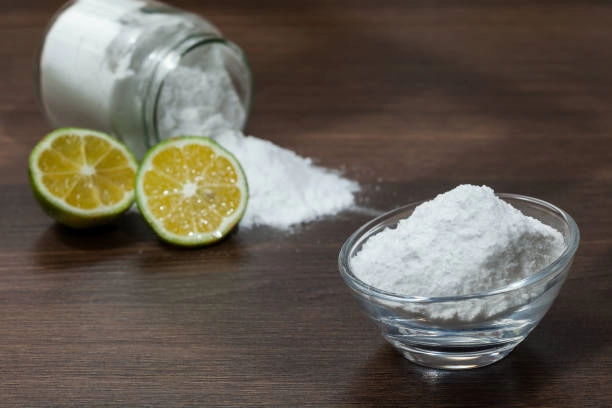Talcum Powder Lawsuits: Eligibility, Process, and Key Facts

What is a Talcum Powder Lawsuit?
Talcum powder lawsuits have gained widespread attention due to concerns about potential health risks associated with the prolonged use of talcum powder products. These lawsuits primarily revolve around individuals who have developed serious health conditions such as ovarian cancer or mesothelioma after regular exposure to talcum powder.
Many affected individuals or their families have pursued legal action against manufacturers, claiming that they were not adequately warned about the potential health risks. If you or a loved one has experienced adverse health effects after using talcum powder products, you might be eligible to file a talcum powder lawsuit. Understanding your eligibility and the legal steps involved is crucial in seeking compensation for medical expenses, pain and suffering, and other damages.
Who Can File a Talcum Powder Lawsuit Based on Health Issues?
Individuals who have developed health complications after using talcum powder products may have legal grounds to file a lawsuit. The most commonly reported health concerns associated with talcum powder include ovarian cancer and mesothelioma. If you believe your health issues are related to the long-term use of talcum powder, you may have a valid claim.
The following groups of people generally qualify to file a talcum powder lawsuit:
- Individuals diagnosed with ovarian cancer or mesothelioma after prolonged talcum powder use.
- Family members of individuals who passed away due to talcum powder-related illnesses may file a wrongful death lawsuit.
- People who can provide medical records and proof of product use to establish a direct link between their health condition and talcum powder usage.
Taking legal action can be complex, so it is advisable to consult with an experienced attorney who specializes in talcum powder lawsuits. They can provide tailored legal guidance and assess the validity of your case.

Eligibility Criteria for Filing a Talcum Powder Lawsuit
Eligibility to file a talcum powder lawsuit largely depends on specific criteria related to product usage and health diagnosis. Here are the primary factors that determine eligibility:
- Medical Diagnosis: You must have been diagnosed with a health condition such as ovarian cancer or mesothelioma that could be linked to talcum powder use.
- Usage History: You should have a history of consistent talcum powder use, especially for personal hygiene or cosmetic purposes.
- Product Identification: Providing evidence of the specific talcum powder product used is crucial in establishing a case.
- Timeframe: You must file your claim within the statute of limitations in your state. This timeframe varies from state to state, so it is essential to act promptly.
- Documentation: Collecting medical records, product purchase receipts, and any relevant evidence that supports your claim is vital.
Meeting these criteria strengthens your case and enhances your chances of receiving compensation. Working with a legal professional can simplify the process and ensure you meet all necessary requirements.
Common Reasons for Filing a Talcum Powder Lawsuit
Several reasons prompt individuals to file talcum powder lawsuits, primarily centered around health risks and product safety concerns. The most common grounds for filing these lawsuits include:
- Health Conditions: Many lawsuits are filed by individuals diagnosed with ovarian cancer, mesothelioma, or other serious health conditions after using talcum powder.
- Manufacturer Negligence: Plaintiffs often claim that manufacturers, such as Johnson & Johnson, failed to adequately warn consumers about the potential health risks of talcum powder.
- Product Liability: If the product is found to contain harmful substances like asbestos, which has been linked to cancer, manufacturers can be held liable.
- Wrongful Death: Families who have lost loved ones to talcum powder-related illnesses may file a wrongful death lawsuit seeking compensation for medical bills, funeral costs, and emotional distress.
These lawsuits aim to hold manufacturers accountable for their negligence and secure financial compensation for affected individuals and their families.
Role of Medical Evidence in Talcum Powder Lawsuits
Medical evidence plays a crucial role in establishing a direct link between talcum powder use and adverse health conditions. Without credible medical evidence, proving liability in a talcum powder lawsuit can be challenging.
Key pieces of medical evidence that strengthen a case include:
- Diagnosis Reports: Documentation of ovarian cancer, mesothelioma, or other related illnesses.
- Treatment Records: Proof of ongoing medical treatment related to the diagnosed condition.
- Medical Testimony: Expert medical opinions that support the claim that talcum powder use contributed to the illness.
Additionally, studies and research linking talcum powder to health risks can further strengthen the plaintiff’s case. A skilled attorney can help compile all necessary medical evidence to build a robust case.
Time Limits for Filing a Talcum Powder Lawsuit
Time limits, also known as the statute of limitations, play a critical role in determining whether you can file a talcum powder lawsuit. Each state has a different statute of limitations, typically ranging from one to several years. Missing the deadline may result in the loss of your legal right to pursue compensation.
The statute of limitations generally begins:
- From the date of diagnosis of a health condition related to talcum powder.
- From the date of discovery that the illness may have been linked to talcum powder.
Consulting with a legal expert immediately after diagnosis can help ensure you file your lawsuit within the designated timeframe. Legal professionals can also assist in understanding state-specific regulations regarding time limits.
Steps to Take Before Filing a Talcum Powder Lawsuit
Before initiating a talcum powder lawsuit, it is essential to take the following steps to build a strong case:
- Gather Medical Records: Obtain documentation that confirms your diagnosis and any related treatment records.
- Document Product Usage: Record your usage history, including the brand, product type, and duration of use.
- Secure Product Proof: If possible, retain purchase receipts or product containers as physical evidence.
- Consult a Lawyer: Engage a qualified attorney experienced in talcum powder lawsuits to evaluate your case.
- Understand Legal Rights: Familiarize yourself with your legal rights, compensation eligibility, and the lawsuit process.
Following these steps ensures you are well-prepared for legal action and improves your chances of receiving financial compensation.

Consulting a Lawyer for Talcum Powder Lawsuit Eligibility
Consulting a legal professional is crucial for individuals considering a talcum powder lawsuit. A qualified lawyer can provide the following assistance:
- Case Evaluation: Assess the strength of your claim based on medical evidence and product usage history.
- Legal Guidance: Explain your rights and legal options throughout the lawsuit process.
- Documentation Assistance: Help gather and compile all necessary evidence to support your claim.
- Negotiation and Representation: Represent you in court or settlement discussions to obtain the maximum possible compensation.
If you believe you are eligible to file a talcum powder lawsuit, do not delay in seeking legal assistance. Acting promptly ensures you meet the statute of limitations and maximize your chances of securing compensation.
Frequently Asked Questions (FAQs)
1. Who can file a talcum powder lawsuit?
Individuals diagnosed with ovarian cancer, mesothelioma, or other related health conditions after prolonged talcum powder use may file a lawsuit. Family members of deceased individuals may also file a wrongful death lawsuit.
2. What evidence is required to file a talcum powder lawsuit?
Medical records, product purchase receipts, and expert medical testimony are essential to substantiate a talcum powder lawsuit claim.
3. How long do I have to file a talcum powder lawsuit?
The statute of limitations varies by state, typically ranging from one to several years. Consulting a legal professional is recommended to understand state-specific timelines.
4. Can I file a lawsuit if my loved one passed away due to talcum powder-related illness?
Yes, family members of deceased individuals may file a wrongful death lawsuit to seek compensation for medical expenses, funeral costs, and emotional distress.
5. What compensation can I receive from a talcum powder lawsuit?
Compensation may cover medical expenses, lost wages, pain and suffering, and other related damages. The amount varies based on the case’s specifics.


